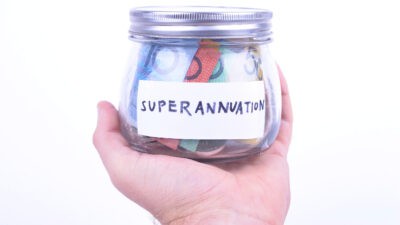"The four most dangerous words in investing are 'This time it's different'"
That quote, from famed — if these days, lesser known — investor Sir John Templeton, is one of the most important foundations for investors.
Dot.com boom: This time it's different!
Bitcoin: This time it's different!
Mining 'super cycle': This time it's different!
Lithium boom: This time it's different!
Except, well, it wasn't.
Hence Sir John's warning.
Hope springs eternal. Greed closely follows.
And for some of us, that combination — when applied to a plausible story told by a confident saleswoman — well, it's seductive.
"It's going to be huge" (We can already visualise how we're going to spend the fortune we'll make)
"Don't miss out" (Greed's cousin, envy, is never far away, and we just can't stand to see our brother-in-law get rich while we miss out)
"Get in before the crowd wakes up" (We like to be told we're smarter than everyone else. It's good for the ego)
True: China will consume more commodities
Inconvenient and also true: Mining companies will dig more holes, and the offsetting growth in supply will keep prices in check
True: Electric cars will need more lithium
Inconvenient and also true: The current demand is very small, and there's no shortage of miners trying to capitalise. See above.
True: Some people think Bitcoin might replace gold and/or sovereign currency
Inconvenient and also true: There's no sign that the probability of either is meaningful, and even if true, that the current price can be reasonably assessed as good value
And on it goes.
But…
But — and this is where I get into dangerous territory — we need to be careful.
One of my favourite quotes comes from Thomas Jefferson:
"In matters of style, swim with the current; in matters of principle, stand like a rock"
So it's important to differentiate between the investing principles that (almost) never change, and the companies, products and technologies that do.
Here are some things I think are "different this time":
Brands are less universal than any time in the last 70 years
We don't all sit down to the 6.00pm news on a Sunday, and see the same ads. We see and react to different things.
Consumers are less homogenous
This follows somewhat from the last one. There was a time when you either drank VB or Tooheys Draught and you were either a Holden or Ford man (Holden, obviously). You were either 'us' or 'them'. These days, you can find (or create) your tribe on social media, and our preferences are splintering accordingly. At last count, there were three craft beer brands for every adult in the country (probably not, but I couldn't prove otherwise).
Technology doesn't change the 'what', but it smashes the 'how'
There's little that's different in our shopping, wearing, reading or watching preferences. But the opportunity to do those things when and where we want to, from a seemingly unlimited range of potential vendors, is unprecedented.
Technology has made everything faster
It took decades to go from party line phones, to rotary dial phones and then to push button phones (kids, ask your parents, or just Google it). Then a little over a decade from the introduction of the iPhone to having a world (literally) of information, entertainment and, well, everything at your fingertips.
Business models are being upended, disrupted and superseded at breakneck speed. (Just look at multiple Motley Fool recommendation Nanosonics (ASX: NAN), up 25% this morning, for evidence.
Cheap money makes a difference
This one is probably transitory. But for now, with interest rates so low and so much Venture Capital cash sloshing around, companies are buying customers (and making huge losses) at a rate of knots. I've long said 'You can only be as profitable as your least rational competitor allows you to be'. VC money is that, but on steroids.
If some of that cheap money really wants to shake up an industry, you'd better watch out. Companies like Tesla, Beyond Meat and Uber would have been dead and buried long ago without the billions that VCs are suddenly prepared to throw around. That just didn't happen — at this scale — a decade ago.
Foolish takeaway
In our modern world, the investor needs to be more astute and thoughtful than ever.
It's vital to capably discern between 'principle' and 'style'.
And here's a shortcut: if in doubt, 'follow the money'.
(That's consumer and business money, not flashy venture capital. A whole lot of that is going to be blown up. That's one thing that isn't different this time!)








